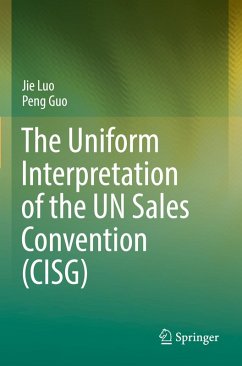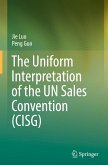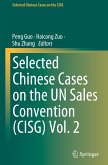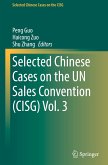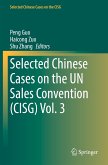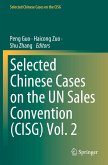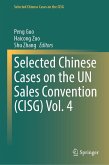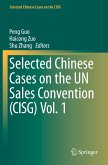The unification of international commercial law has been a common course for every country of the world. The U.N. Convention on Contracts for International Sale of Goods (CISG) is a milestone in creating a uniform law in the field of the international sale of goods. The CISG coordinated divergent political, economic, and legal systems combined different contract laws and set up a comprehensive and independent legal framework for the international sale of goods.
This book examines the basic requirements and criteria of the CISG's interpretation and investigates how to achieve the uniform interpretation of the CISG based on interpretation rules in the CISG and through appropriate legal interpretation approaches.
As a comprehensive and uniform legal framework for the international sale of goods, the CISG still has gaps to fill. Therefore, a uniform interpretation in gap-filling is equally important for the CISG. This book discusses gap-filling in the CISG, explainswhyand how to fill its gaps, clarifies gap-filling approaches, their order of application, and eventually concentrates on general principles and the uniform interpretation of the CISG.
Another feature of the book is to discuss the supplementary materials that could be used to assist in the uniform interpretation of the CISG. PICC, foreign cases, UNCITRAL Digest, and the CISG Advisory Council opinions will be examined in detail to see whether and how they can fill the gaps in the CISG and promote its uniform interpretation.
Only by clarifying the basic requirements and principles relating to the CISG's uniform interpretation, can courts and arbitral tribunals correct their attitude toward and practices in the interpretation of the CISG. Only by following the autonomous interpretation approach, can the CISG achieve its goal to unify the sale of goods laws and promote the development of international commerce.
This book examines the basic requirements and criteria of the CISG's interpretation and investigates how to achieve the uniform interpretation of the CISG based on interpretation rules in the CISG and through appropriate legal interpretation approaches.
As a comprehensive and uniform legal framework for the international sale of goods, the CISG still has gaps to fill. Therefore, a uniform interpretation in gap-filling is equally important for the CISG. This book discusses gap-filling in the CISG, explainswhyand how to fill its gaps, clarifies gap-filling approaches, their order of application, and eventually concentrates on general principles and the uniform interpretation of the CISG.
Another feature of the book is to discuss the supplementary materials that could be used to assist in the uniform interpretation of the CISG. PICC, foreign cases, UNCITRAL Digest, and the CISG Advisory Council opinions will be examined in detail to see whether and how they can fill the gaps in the CISG and promote its uniform interpretation.
Only by clarifying the basic requirements and principles relating to the CISG's uniform interpretation, can courts and arbitral tribunals correct their attitude toward and practices in the interpretation of the CISG. Only by following the autonomous interpretation approach, can the CISG achieve its goal to unify the sale of goods laws and promote the development of international commerce.

